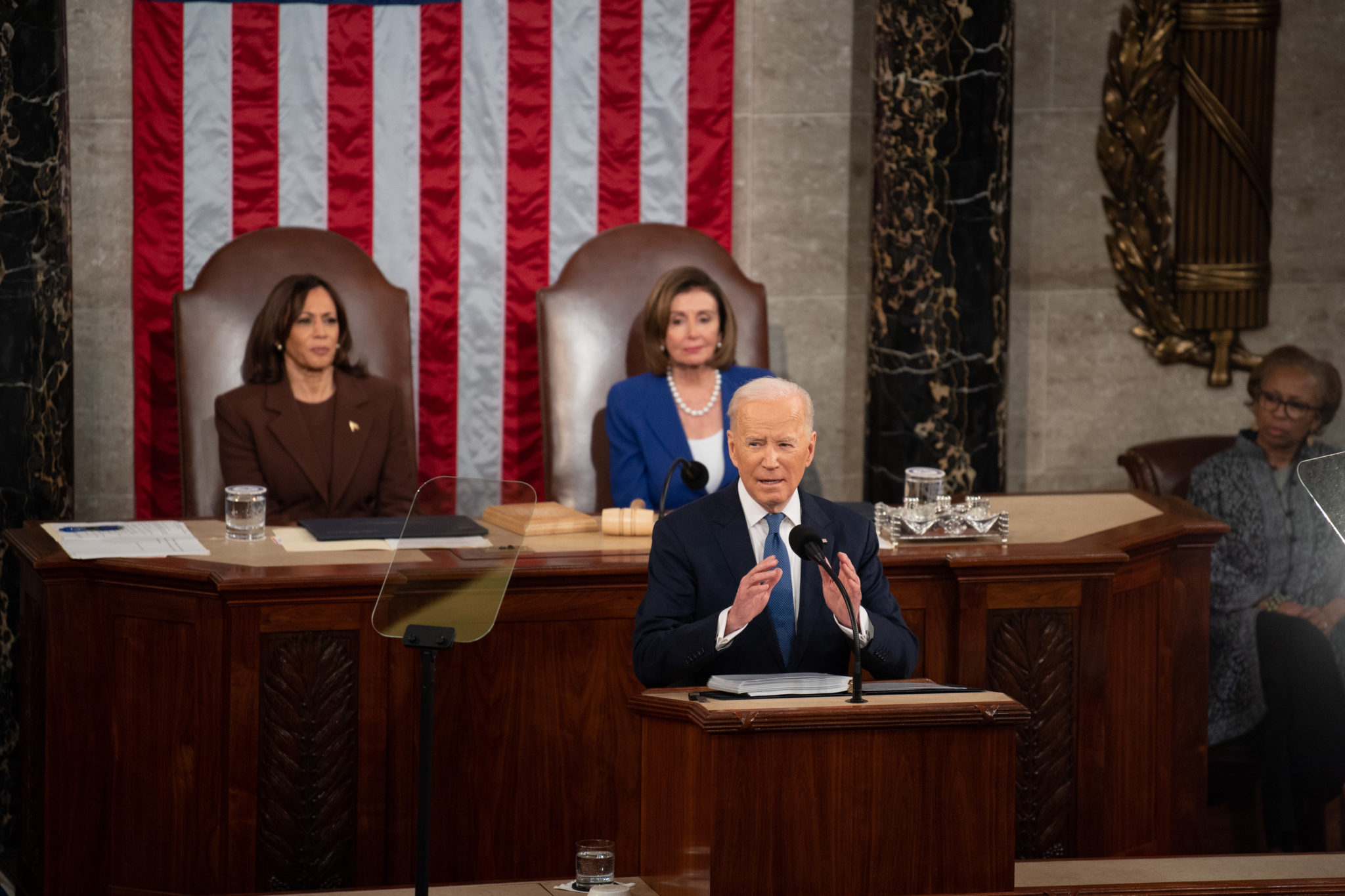The 2022 State of the Union address was the first such speech to mention harm reduction. The brief reference reinforced both the Biden administration’s inclusion of harm reduction in its approach to drug policy as well its habit of doing so to the minimum possible degree.
“We’re grateful the Biden-Harris administration is prioritizing [harm reduction] and is the first administration to incorporate it into their overall overdose prevention strategy,” Grant Smith, deputy director of national affairs at Drug Policy Alliance, told Filter. “But that’s not to say they shouldn’t be doing a lot more. We certainly need a lot more funding.”
Deep into Biden’s first SOTU, delivered March 1 before Congress, Biden cited the “opioid epidemic” as one of four bipartisan issues around which we could unify, along with mental health, supporting veterans and ending cancer.
Let’s examine his comments in full, since it won’t take long.
“First, beat the opioid epidemic.”
Not that anyone expected updated language for this particular speech, but Biden’s choice of such an inaccurate term was, at best, a missed opportunity if his intention was to actually prioritize harm reduction. “Overdose crisis” would have been an easy way to show an evolving understanding without having to actually do anything.
“There is so much we can do.”
Checks out.
“Increase funding for prevention, treatment, harm reduction and recovery.”
There are a number of relevant things we could prevent with increased funding, including mass death and blood-borne disease transmission, but Biden is most likely saying we will prevent drugs.
Much has been made of the current administration allocating the first-ever federal funding for harm reduction, which has understandably led many to assume that harm reduction programs were actually given money. In reality, eligible programs were forced to compete against each other in a high-barrier grant application process. The eventual recipients of the grants will receive, over the course of three years, some fraction of a total sum that’s about 1 percent of what the Biden administration approved for the Drug Enforcement Administration in 2022 alone.
“If you’re not at the table, you’re on the menu” is the most apt description of this SAMHSA *harm reduction* grant which completely out of reach for most syringe service programs. This movement is up to be sliced and diced, eaten up by huge systems that don’t understand us at all
— NEXT Distro (@NEXTDistro) February 6, 2022
“Get rid of outdated rules that stop doctors from prescribing treatments.”
Biden’s stated goal for medications for opioid use disorder (MOUD) is universal access by 2025. Though we’ve seen some progress around easing buprenorphine restrictions, MOUD access rates are abysmal, especially among people of color, and the administration has yet to push through other critical interventions it’s identified, like mobile methadone delivery.
“Stop the flow of illicit drugs by working with state and local law enforcement to go after the trafficker.”
The White House statement supplementing Biden’s remarks on drug use and harm reduction gives a somewhat fuller picture of what he was getting at here. Ultimately, this is about the federal government using the harms of its own drug policies to justify violence against anyone it can claim is helping “transnational organized crime” groups bring in fentanyl through Mexico. Somewhat ironically, the statement correctly acknowledges so-called drug trafficking as an activity that “transcends geographical boundaries” despite its promise that we will prevent drugs by funding border security.
“And if you’re suffering from addiction, you know, you know you’re not alone. I believe in recovery, and I celebrate the 23 million, 23 million Americans in recovery.”
In keeping with the “opioid epidemic” theme, Biden’s focus on addiction and recovery is somewhat beside the point for anyone focused on ending mass overdose and other harms of federal drug policy. Most people who use drugs do not have a substance use disorder, and an unregulated supply is dangerous to anyone who uses it. Also worth noting here that this statistic does not refer exclusively to illicit drugs, but to any drug, including alcohol.
DPA previously provided a restricted grant to The Influence Foundation, which operates Filter, to support a Drug War Journalism Diversity Fellowship.
Photograph of President Biden delivering 2022 SOTU via United States House of Representatives





Show Comments